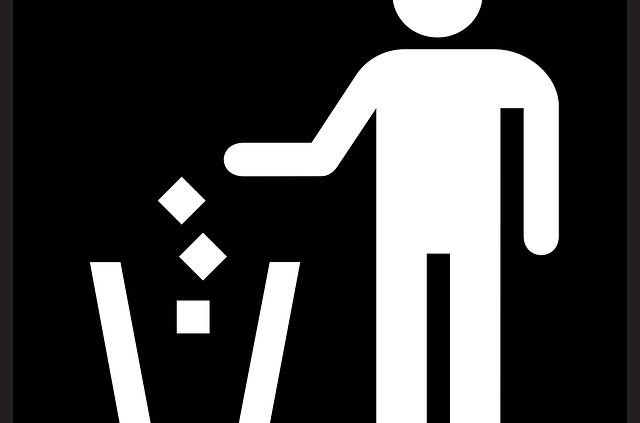Imagine having about 3 seconds to decide to keep or toss an email. Hundreds of emails. That’s what a typical day is like for a producer or editor. We get so many emails into our inbox that it’s impossible to look at them all. So they have to really catch our attention and make us want to find out more.
There are some that pop up over and over again and make us cringe. Don’t make the mistake of sending one of these subject lines to a journalist – she will likely hit delete immediately.
Bad Subject Line #1: What stories are you working on?
Ugh this is a common mistake. You think you’re being inquisitive and conversational but instead you are inadvertently rubbing a producer the wrong way with this subject line. Here’s why — it makes us do all the work! We have to stop, think about it and write you back. Plus, we might not even know who you are and definitely don’t have time to do an audit of all the stories we are working on.
Instead, make your offer. Tell me how you can help me do my job better. Is it that you are an expert in Jamaican cooking and you have a few simple recipes to share for the cold winter months? Or maybe you’re a publicist and you have several experts to share. Give up the goods! Show me what you can do to help me lighten my load, don’t add to it.
Bad Subject Line #2: Can I pitch you?
You’ve already lost my interest. Don’t ask to pitch – because you could have wasted your one shot at getting a journalist’s attention. I have no idea what is inside this email by this subject line – it doesn’t give me one detail. So I will just pass it by.
Instead, be catchy. Lay out your topic in a compelling way. Watch some TV news shows to get this tactic down. You know right before they go to commercial how they say “Coming up after the break” and go into what’s still to come? Well those are called teases and they are meant to whet your appetite and keep you watching. Do the same with your subject line. Make me want to find out more about what you’re offering.
Bad Subject Line #3: Can I call you about this?
No, I don’t have time to talk to you. I just don’t—especially when you haven’t made it clear what you’re pitching. So unless I know what I’m going to get from you, the answer is no.
Instead, give me a glimpse. Show me what you as an expert can give my audience. The one question you should be answering with your pitch is “why do I care?” And that “I” is the producer or editor who is sitting in the place of her audience. So why does that audience care about what you have to say?
Bad Subject Line #4 : Anything including “breakthrough” or other over-the-top claim
While obviously something described as “breakthrough” may initially get my attention, my BS meter is highly calibrated—people are always try to dupe us this way to get media coverage. I’ll know in seconds whether you’ve got the goods. So you better be sure you do. Because fool me once…and that’s it. Make a big claim, and fail to deliver, and I will no longer take your pitches seriously.
Instead, deliver on your promise. Make sure whatever it is that you choose to send to a journalist is rock solid information. Don’t go all over the top or outlandish to get our attention if you can’t deliver. Be careful with how your frame your stories because more than just getting media exposure you want to develop real relationships with members of the media. How do you think we find our recurring guests? Those are the ones that deliver quality content over and over again and never try to trick us.
Paula Rizzo is the co-creator of Lights Camera Expert, a six-week program that teaches experts, authors, entrepreneurs how to get, and keep, media attention. She’s also the author of Listful Thinking: Using Lists to be More Productive, Highly Successful and Less Stressed and founder of ListProducer.com.
Excuses are sneaky things. Sure, some of them are loud and whiny. But there are plenty of others whom you might mistake for good reasons, simply because they appear that way: They report for duty in fitted suits and fine shoes, freshly shaved and coiffed. Their job? To provide perfectly sound and logical responses to the question you keep thinking about: “Why haven’t I”—written my blog, pitched that editor, made a bigger effort to get in front of people.
Your excuses, disguised as “reasons,” have responses ready: The time isn’t right. You’re not ready. You should wait until you have more money or whiter teeth or more information.
These guys work hard—on the wrong things. It’s time to lay them all off.
Why? Because the reasons that you pay a lot of time and attention to are actually keeping you from your real goals: To stand out, step up, to speak out and get yourself heard.
I happen to know a few of these by name—I’ve caught them wasting my time too. It’s time to purge them from your mental workforce so you can recruit more effort for the things you want to achieve. Let’s tear the masks off these three in particular, Scooby Doo style.
Excuse #1: “I’m not an expert.”
In fact, you are an expert—not on everything, and probably not the only expert in the world or in your industry. But you absolutely are an expert in what you do. You likely assume other people know what you do. You would be wrong.
You underestimate what you know and how valuable it can be to others. If you spend your life keeping the books or planning parties or training dogs, you have an opinion about how to do it well. That means that you’re in a position to not just run your business, but to speak, write or contribute in the media as an expert on that topic. It’s true! You’re pretty driven by what you do and whom you help. Wouldn’t it be amazing to reach more people that way? Of course it would.
Excuse #2: I’m just a small business. No one’s looking for me.
You could run a brand-less business (see: the corner deli on my street) where you just take money and provide a service and keep it purely transactional.
But the reason you’re even reading this is because you want your brand, your work, to mean something. And for your brand to mean something, you need to stand for something, but also, have a reason why you do it, and communicate it to the people who need it most.
Just because you’re a small business doesn’t mean you should think small. But bigger does not mean “broader”—bigger means seeing the many other ways in which what you do matters to someone else. Find it and lean into it. (Here’s a post I did on how you know you’re having a brand crisis.)
Excuse #3: I need to do more research on the right software/platform/etc.
You might think a fear of tech and learning new tools would stop you cold. And it can. I knew an incredibly bright woman who wanted to start a podcast but was completely hung up over the tech. Paula and I showed her exactly what mic to get and we physically plugged it in for her and walked her through it. She couldn’t believe how easy it was.
But a love of tech can slow you up, too, because then you spend all this time researching instead of doing. One guy on FB was dithering over the right email platform because he hadn’t written to his list and wanted to.
I called him out on it, and said that he needed to just go with the one that seemed simplest and most appealing, the subtleties of functionality didn’t matter. He could always switch as his needs changed, but if he was already behind on his goal to connect with his readers in a meaningful way, it actually doesn’t matter which one he used right now. One lady disagreed with me and I called her out, too. Because I can get feisty on Facebook, and I also thought she was adding fuel to his perfectionist fire.
So whether you love tech and research, or loathe it all, do not let it stand between you and the people you want to reach.
Seth Godin says that perfectionism is a way of hiding.
Rather than waste time shopping for the right platform or tool, he says, you should shop for commitment, because that’s what you need right now. Boom.
It’s time for you to be committed less to your excuses and more to the brand you want to build. The world is waiting.
Terri Trespicio is the co-creator of Lights Camera Expert, a six-week program that teaches experts, authors, entrepreneurs how to get, and keep, media attention. Visit her at territrespicio.com.
If you want media attention for your book, brand, or business, you need to know what your “thing” is.
And by that I don’t mean your topic or your subject matter or your industry. Because that’s broad, and while it’s part of what you do and who you are, it’s hardly specific to you.
What I mean by ‘thing’ is that place where your personality, your expertise, your business, and your mission overlap to create that one unique fingerprint of a brand that is yours and no one else’s. Your special gift.
And yes, you do have it. I know you do because this is what I do—and I’ve never worked with someone who doesn’t have one! They just have trouble finding, or committing, to it. But most times, they can’t see the forest for the trees.
Let’s take an example.
If you’re a meditation teacher, your thing is going to have something to do with helping people access peace and stillness in a churning, distracting world. That’s great—but that’s what meditation does, and you are more than the tool you share. You might speak to a range of topics (yoga, mindfulness, stress, resilience, and so on).
But you are more than that. You are not just the technique or tools you teach, but the person who believes in it–and you have your own reasons why that is. THAT is your thing. THe key to get that into words.
Everyone I work with resists the idea of having “one thing.” Even I resist this idea sometimes. We don’t want to think of ourselves as two-dimensional, as similar to everyone else or unoriginal. But. When it comes to media, the broader your pitch, the less interesting you are.
I also know lots of people who throw EVERYTHING at a producer or editor (“I’m a this, and a that, and I do some of this and that”) and it’s confusing to them. And if a producer is confused, it’s a no.
A producer or editor or other member of the media can’t tell you what you are—so don’t leave it up to them to help you figure it out. They may have their opinions, and they may even suggest some things, if the spirit moves them. But it’s not their job to know; it’s yours.
Sure, there are a lot of people who might describe themselves in a way similar to you; i.e., help women invest their money, help millennials negotiate better salaries, offer men insights into how women think so they can win the right one over.
There are no new ideas under the sun—but there’s no one exactly like you. That’s the difference.
Think of your brand positioning as the thing that gets you up the mountain to where you’ll be more visible (a metaphor for media, you with me?). You may think, “oh I’m going to wear the most comfortable, softest shoes so I can wear them as I work my way up the mountain.”
But no. Those shoes are too broad and soft and they can’t hold up to the rigor that’s required of them to climb a steep mountain. You need an edge—something that can cut into the mountain, through the ice and snow and whatever else, and give you some steadier footing. You need the brand equivalent of hiking cleats!
If I am sitting down with the meditation teacher one on one, I’ll ask her why she got into meditation and what she thinks is important for people to understand about meditation, why they might resist it, and why they might want it and not realize it yet.
But I also want to know what she struggles with, and what she has in common with those who would benefit (and the answer can’t be “everyone” and if it is, she’s not being focused enough. Maybe it’s that she’s always been a wildly distracted and distractable person, and liked to move from one thing to the other, but realized she couldn’t finish anything. Maybe meditation gave her the freedom to be more creative without letting silly things detract from meaningful efforts. A distracted meditation teacher who applies the solution to her life? Now I’m interested.
And remember, you don’t have to be the only one doing what you do. If you were literally the only one, chances are that means no one’s interested in it.
It’s fine that there are scores of other meditation teachers or nutritionists or dermatologists. Doesn’t matter.
What matters is that when the media goes looking for one to interview or feature, that you give them a clear picture of who you are and what you think or do that’s specific to you. Find that thing, and go big with it.
Ask yourself:
- What am I trying to do, specifically?
- Why is this a problem for the people I’m speaking to?
- What misunderstandings do they have about “x” and how will I change their minds?
- What personal story do I bring to bear? What key insights?
And give your ideas the cliche test: If you’ve heard it a zillion times before, if everyone already agrees with it, keep digging.
Terri Trespicio is the co-creator of Lights Camera Expert, a six-week program that teaches experts, authors, entrepreneurs how to get, and keep, media attention. Visit her at territrespicio.com.



